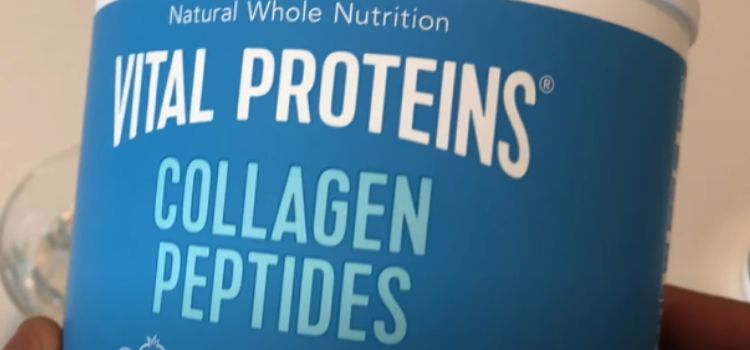As an Amazon Associate I earn from qualifying purchases.
In the quest for better health and wellness, many individuals are turning to supplements like collagen to support their bodies. Collagen, a vital protein that provides structure to the skin, hair, nails, and connective tissues, has gained substantial popularity for its potential benefits. However, a growing concern among consumers is the presence of heavy metals in collagen supplements, particularly in products like Vital Proteins.

In this article, we’ll delve into the topic and explore whether Vital Proteins collagen contains heavy metals. Let’s uncover the truth behind this concern.
Introduction
As people strive to achieve optimal health, the demand for dietary supplements has surged. Collagen, known for its role in maintaining skin elasticity and joint health, has become a sought-after supplement. However, recent concerns have arisen regarding the presence of heavy metals in collagen products, leading to questions about the safety and quality of these supplements.
Collagen and Its Benefits
Collagen is a protein that forms the building blocks of various bodily structures, including skin, bones, muscles, and tendons. It plays a crucial role in maintaining skin elasticity, promoting joint health, and supporting overall bodily functions. Collagen supplements have gained popularity due to their potential to improve skin appearance, strengthen hair and nails, and alleviate joint discomfort.
Exploring Heavy Metals Contamination
Heavy metals are naturally occurring elements that can be found in the environment, including in soil and water. However, industrial processes and pollution can lead to elevated levels of heavy metals in some food sources. Concerns arise when these metals accumulate in the body over time, potentially leading to adverse health effects.
A Closer Look at Vital Proteins
Vital Proteins is a well-known brand that offers a range of collagen-based products, from powders to capsules. While the brand emphasizes the sourcing of collagen from high-quality, grass-fed, pasture-raised bovine, questions have been raised about the potential presence of heavy metals in their products.
Third-Party Testing and Certifications
To address consumer concerns, many reputable collagen supplement manufacturers, including Vital Proteins, subject their products to third-party testing. These tests evaluate the products for heavy metals, ensuring that they meet safety standards set by regulatory authorities.
Debunking Misconceptions
Misconceptions about heavy metals in collagen supplements can stem from a lack of understanding about the rigorous testing and quality control measures that reputable manufacturers employ. It’s important to rely on information from credible sources and to recognize that responsible supplement companies prioritize the safety and well-being of their customers.
Tips for Choosing High-Quality Collagen Supplements
When selecting collagen supplements, consider the following tips
- Opt for products from well-established brands that prioritize transparency.
- Look for supplements that have undergone third-party testing for heavy metals and other contaminants.
- Read product labels and ingredient lists to ensure you’re making an informed choice.
- Consult with a healthcare professional before incorporating new supplements into your routine, especially if you have underlying health conditions.
Ensuring Safety and Efficacy
While concerns about heavy metals in collagen supplements exist, reputable brands like Vital Proteins prioritize safety and quality. By choosing products that have undergone rigorous testing and adhering to recommended usage guidelines, consumers can make informed decisions that support their well-being.
conclusion
In the pursuit of improved health and wellness, collagen supplements have emerged as a popular choice for many individuals. Vital Proteins, a prominent brand offering collagen-based products, has attracted attention and scrutiny regarding the possible presence of heavy metals in their supplements. However, a closer examination of this concern reveals a nuanced perspective.
Collagen, a vital protein essential for maintaining skin, joints, and overall bodily health, has been embraced for its potential benefits. The worry over heavy metal contamination in collagen products stems from genuine apprehension about long-term health consequences. This concern, though valid, is often mitigated by rigorous quality control measures that responsible manufacturers like Vital Proteins adhere to.
It is important to note that heavy metals are naturally occurring elements found in the environment. While they can be harmful in excessive amounts, reputable manufacturers subject their products to third-party testing to ensure compliance with safety standards set by regulatory authorities. Brands like Vital Proteins prioritize transparency and consumer well-being by sourcing high-quality ingredients and undergoing thorough testing processes.
The misconceptions surrounding heavy metals in collagen supplements can be dispelled by recognizing the efforts that reputable companies invest in maintaining product quality and safety. To make informed choices, consumers are encouraged to rely on credible sources of information and to consult healthcare professionals before introducing new supplements into their routines.
Ultimately, the concerns over heavy metals in collagen supplements should not overshadow the potential benefits these products can offer. With proper research, prudent selection of well-established brands, and adherence to recommended usage guidelines, consumers can confidently incorporate collagen supplements into their overall health regimen. The pursuit of wellness is aided by knowledge, discernment, and collaboration with trusted professionals – ensuring that the path to a healthier lifestyle is supported by informed choices.
Frequently Asked Questions
Yes, collagen supplements are generally considered safe when sourced from reputable manufacturers and used as directed.
Collagen supplements can complement a balanced diet but should not be considered a sole source of nutrition.
Look for products that have been third-party tested for heavy metals and other contaminants.
Collagen supplements are well-tolerated by most individuals. However, minor gastrointestinal symptoms may occur in some cases.
For more information, consult reputable health and wellness resources or speak with a healthcare professional.
Amazon and the Amazon logo are trademarks of Amazon.com, Inc, or its affiliates.